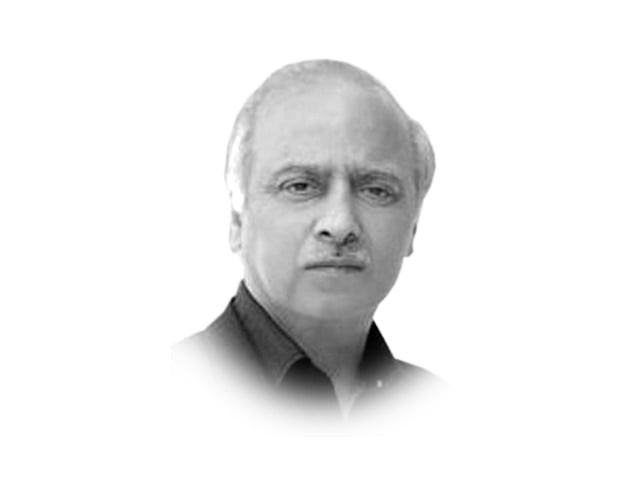Two contrasting legacies
Khanzada essentially represented strategic transformation Pakistani civil-military ruling elite reluctantly embraced

The writer heads the independent Centre for Research and Security Studies, Islamabad and is the author of Pakistan: Pivot of Hizbu Tahrir's Global Caliphate
The posthumous commentary on the two officers makes for an interesting study of their respective legacies. For instance, a flood of accolades followed Gul’s demise. Many grounded their appreciation for him citing his fierce patriotism, strategic planning, military professionalism, integrity, his love for radical forces (the Taliban) and anti-Americanism. These people never mentioned his key role in anti-democracy movements (creation of the IJI), as well as his support for forces which today are killing Afghans and Pakistanis.
Gul’s was a career defined by defiance. He preferred retirement over being appointed to the post of director-general Heavy Industries Taxila, which he considered to be below his dignity. After retirement, he continued to propagate what he did while in uniform. That is why he was also erroneously seen by Indians and Afghans as a mouthpiece for the Pakistani security establishment. It is no surprise then that his detractors in India and Afghanistan declared Gul’s demise as “the death of the real Mulla Omar” for the simple reason that they often found him sitting with proponents of the Afghan Jihad Council — all of whom are viciously anti-West and anti-India. He never minced words nor held back his ‘vision’, which basically consisted of projecting the whole of the West bent on harming the Muslim ummah, regardless of the fact that the Muslim ummah itself is defined by ideological and political divisions, minimal or absent democratic norms, and is overshadowed by autocratic self-serving rulers.
According to a noted blogger, it was one thing to pursue the aim of ousting the USSR from Afghanistan as our military understandably feared the possibility of Pakistan being the superpower’s next target. It was entirely another to go on fueling the fighting in Afghanistan after the Soviet withdrawal in order to install fundamentalists like Gulbuddin Hekmatyar in power.
Others saw the general as somebody who promoted and supported the questionable legacy of General Ziaul Haq. According to another blogger, “… Gul was responsible for most monsters threatening the very existence of Pakistan and exporting global terror. Yes, one of the conductors has died but his symphony still goes on.”
The response to Colonel (retd) Khanzada’s martyrdom in a suicide strike, on the other hand, offered a striking contrast. It drew a deluge of sympathy and appreciation for his courageous lead in the counterterror fight in Punjab. His death grieved and shocked everybody because he was in the forefront of the campaign meant to eliminate the monsters that grew out of the womb of the questionable Afghan jihad and raised their ugly heads after the 9/11 attacks.
Many of these monsters were once part of the state’s cost-effective first line of defence against India and chose to go their own way once the state pulled the plug on them. Abetted and aided by external forces, they flourished and kept inflicting pain on Pakistanis until the emergence of the National Action Plan following the dastardly attack on the Army Public School last year.
Khanzada left a legacy that is almost opposite to that of Gul. The former essentially represents the strategic transformation that the Pakistani civilian and military ruling elite reluctantly embraced. The retreat and splintering of the vicious TTP, the Karachi operation against criminal syndicates, and the readiness to facilitate Afghan peace talks are all but a few indicators of the change that Pakistan is undergoing — albeit with many hiccups and shortcomings. It still remains to be seen, however, whether the distinction between good and bad Taliban is still adhered to or not. But the legacy that Khanzada has left behind is totally unambiguous.
Gul symbolised sympathy or empathy for those indigenous forces which are inimical to, and often contemptuous of, the way most Pakistanis want to live. Many remember General Zia as a God-fearing, honest man of character. But let’s not err here. People in extremely important positions are known by what they do for their nations and not by their personal piety and ideological motivations. Memories of people like Khanzada, Bashir Bilour, and many military officers will remain etched in history as symbols of resistance to religious obscurantism and backward political ideals.
Published in The Express Tribune, August 19th, 2015.
Like Opinion & Editorial on Facebook, follow @ETOpEd on Twitter to receive all updates on all our daily pieces.















COMMENTS
Comments are moderated and generally will be posted if they are on-topic and not abusive.
For more information, please see our Comments FAQ